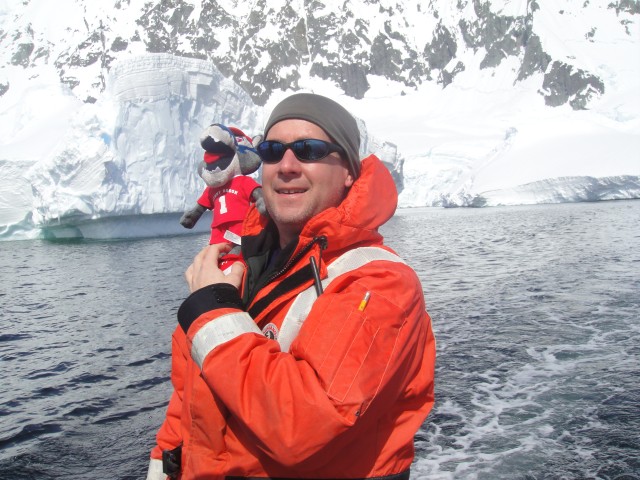

Photo Courtesy / Chris Powers
BY CHRIS POWERS
SC STAFF WRITER
On April 26, 2013, Joe Warren, a professor from Stony Brook University, came to ESU to give a presentation on the foraging behavior of large baleen whales.
These whales feed primarily on small fish and zooplankton, which are plankton consisting of small animals and the larval stages of larger animals that drift or float in the water.
Not much is known about the interactions between the zooplankton and the whales because it is difficult to observe what is happening beneath the water. The primary methods of measuring activity underwater are with cameras, or by measuring the diversity and distribution of underwater life with nets.
Dr. Warren uses echosounders, which are essentially large and complicated fish finders, in order to measure masses of zooplankton under the water. These “fish finders” send sound waves out into the water and then record the scattering of sound that occurs when the sound meets an object, such as zooplankton.
While Dr. Warren is doing this, whales are tagged with a DTAG, a device which measures underwater whale movements in 3D, and tracks them as they move through the water.
By combining these two sets of data, Dr. Warren and various other scientists are able to track how much food is present where whales are feeding and from this can estimate the amount of feeding taking place.
This not only provides a rough estimate for how much the whales are eating, but how they move as they eat and how deep they dive in order to eat.
Dr. Warren completed his undergraduate degree in Engineering at Harvey Mudd University in California.
During this time he had little exposure to the biological sciences and focused on the physical sciences which are important to engineering.
Dr. Warren had always had an interest in Oceanography and took an elective in Marine Biology while at Harvey Mudd, which only fed his interest and solidified his decision for his graduate work.
For his Graduate work, Dr. Warren participated in a joint program between the Woods Hole Oceanographic institute and MIT for Applied Oceanography where, coincidentally, there was much work done on whale tagging and tracking and there was a huge interest in understanding whale behavior.
Since then, Dr. Warren has become an authority on fish and zooplankton ecology and has done work all around the world on whales, fish, and zooplankton distribution.
Dr. Warren has been to many places through his career. These places are as diverse in environment as they are far away.
Dr. Warren has been as close as Cape Cod and as far away as Australia and Antarctica, which he has visited on ten different occasions to study the zooplankton distribution and the whales that make migratory trips through there to feed. His work has also brought him all along the Pacific Coast of North America, bringing him as far north as Alaska.
Fieldwork such as this is one of Dr. Warren’s favorite aspects of his work.
When asked about his favorite experience, he was reluctant to have to choose one experience out of so many fantastic trips. However, if he had to choose one, Dr. Warren was quite fond of a small bay in Antarctica in early June.
Winter comes in around that time in Antarctica and his research team was following a whale in a dinghy when they came across a huge patch of krill and killed the engine.
After killing the engine, the only thing that could be heard was the sound of the ice cracking, and the majesty of that moment has stuck with him through all these years.
Email Chris at:
cpowers@live.esu.edu
